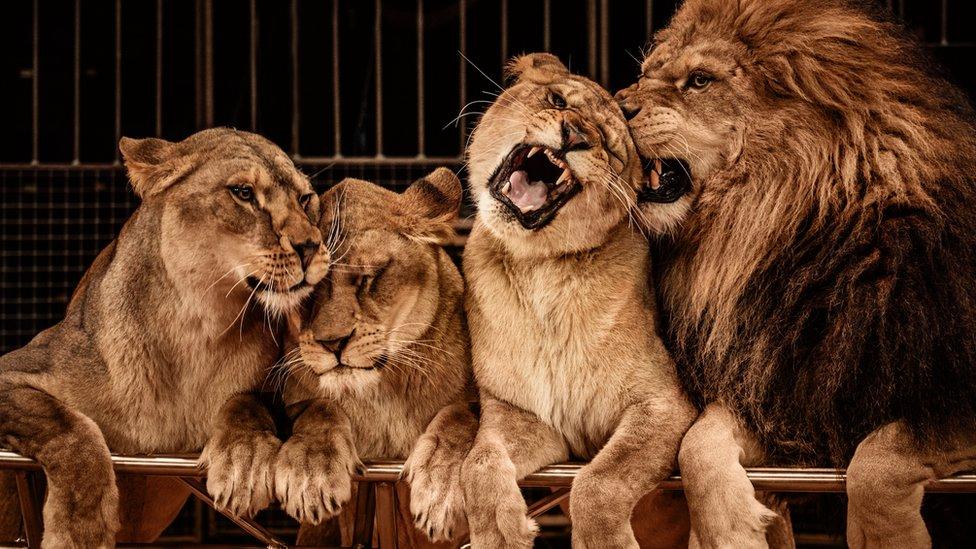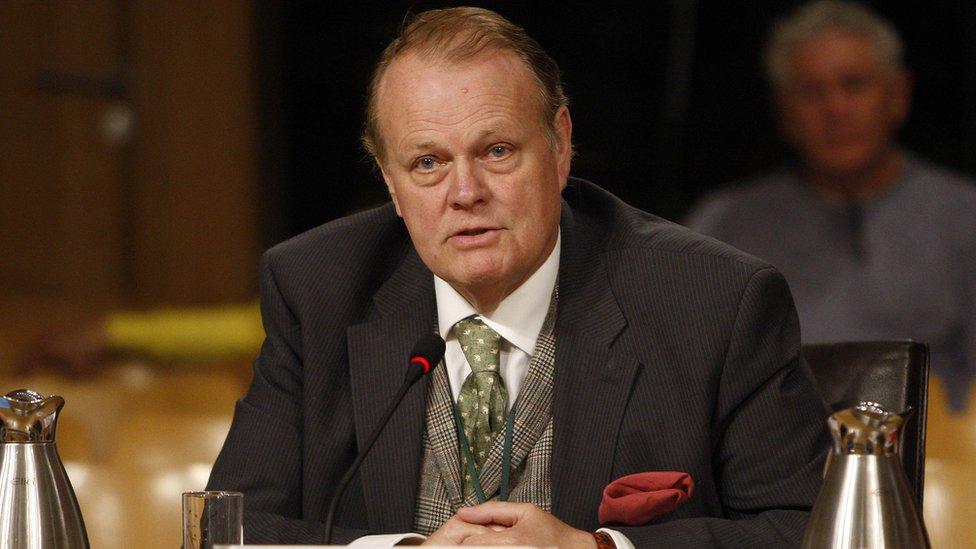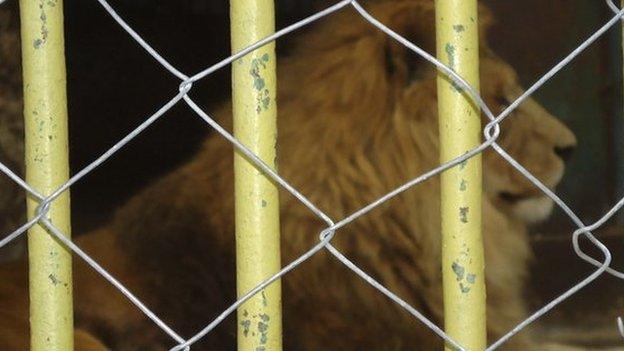Scots ban on wild circus animals 'could close zoos'
- Published

The bill would make it an offence to use wild animals in travelling circuses
A ban on using wild animals in travelling circuses could eventually lead to zoos in Scotland being closed down, a circus leader has told MSPs.
A bill is being considered to bolster animal protection by barring any use of wild animals in travelling shows.
Martin Burton of the Association of Circus Proprietors told MSPs that a law based on the proposed ethical grounds "will eventually close your zoos".
A government consultation found widespread support for a formal ban.
The Wild Animals in Travelling Circuses (Scotland) Bill would be the first of its kind in the UK, and is aimed at banning the use of non-domesticated animals for either performance or exhibition.
Holyrood's environment committee took evidence from a range of animal welfare and circus industry groups.
Mr Burton told members that there were no circuses with wild animals which have visited Scotland in recent times.
However, he said a lack of clarity in the legislation about what constitutes a travelling circus and the definition of a wild animal, along with the emphasis on ethics, could have far-reaching consequences.
He said: "The economic impact on animal displays in shopping centres, on displays at outdoors shows of hawks and wild birds, on reindeer and Santa, and eventually zoos will be massive.
"Eventually that is where this will all go, this will eventually close your zoos."

Martin Burton said an "ethical" ban would lead to zoos being shut down
He added: "Once you start banning things, particularly on ethical grounds, it is clear that this will spread, because if it's ethically not right to have a wild animal in a circus, then it is ethically not right to have a wild animal appear at a gala or a county show, and it is ethically not right to have a wild animal appear in a shopping centre, and it is ethically not right to have a wild animal appear in a zoo.
"It is clear and logical that that is the only way an ethical ban can go. You can't choose your ethics, you're either going to say it is ethical or it is not ethical."
Meanwhile, Rona Brown from the Circus Guild of Great Britain said there was no scientific evidence of current welfare issues for wild animals in circuses, with government vets inspecting licensed circuses three times a year.
Public support
However, members also heard from Dr Dorothy McKeegan, from the Institute of Biodiversity Animal Health and Comparative Medicine at the University of Glasgow, who said the arguments in the bill were valid.
She said the use of wild animals in the circus was disrespectful, and that there was a welfare argument as well as an ethical one to be made.
Members also heard from representatives of City of Edinburgh and Argyll and Bute councils, who said they did not allow circuses to use their land if they had wild animals.
A government consultation in 2014 showed 98% of respondents thought the use of wild animals for performance in travelling circuses should be banned and 96.4% thought the use of wild animals for exhibition (without performing) should be banned.
Animal protection organisations such as the Born Free Foundation, Captive Animals' Protection Society and OneKind have also welcomed the move.
- Published18 May 2017

- Published11 November 2014
